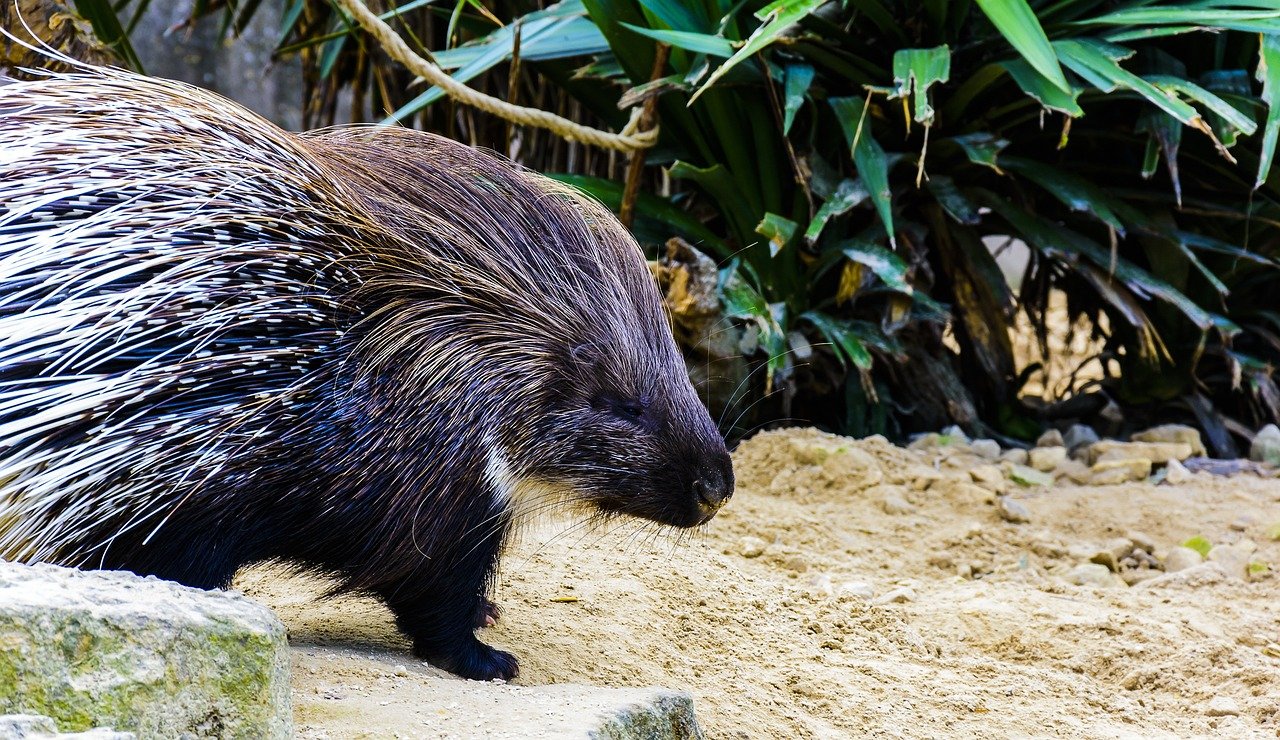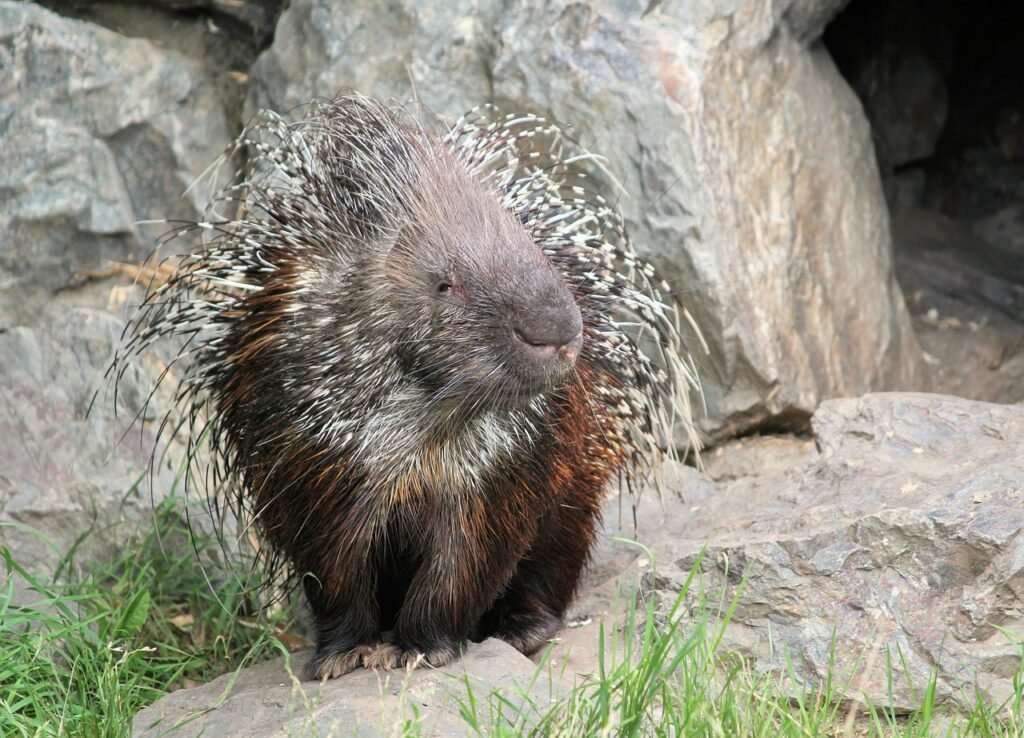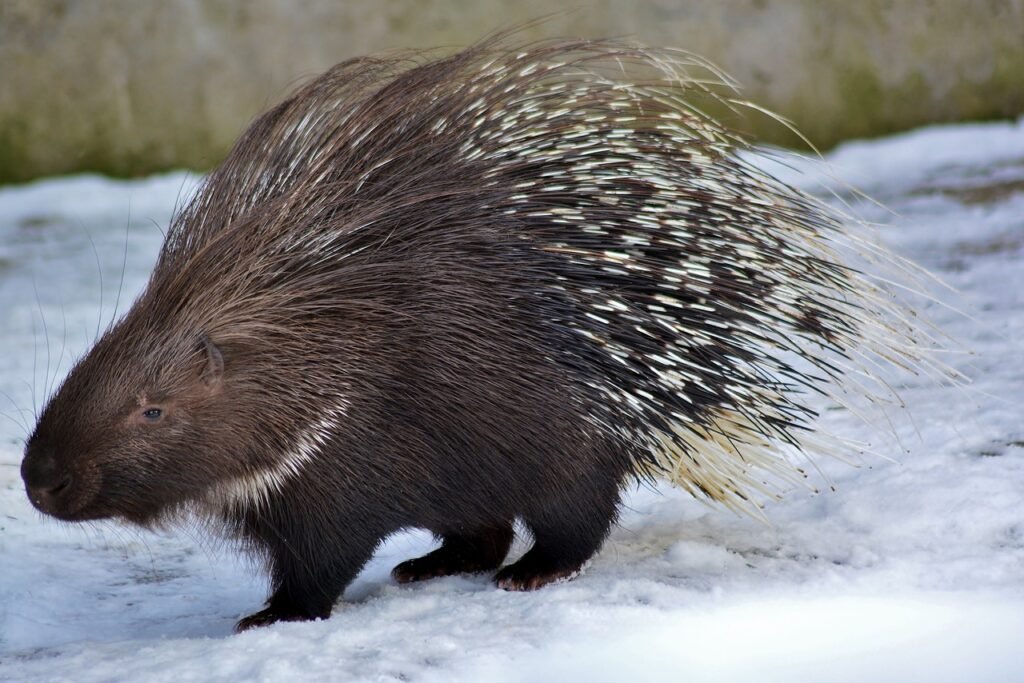Ensuring the well-being of your pet porcupine involves understanding and addressing common health issues that may arise. While porcupines are generally hardy animals, they can still experience various health concerns. In this guide, we explore some common health issues in pet porcupines, their symptoms, and appropriate treatments.
1. Respiratory Infections:
- Symptoms: Labored breathing, wheezing, sneezing, nasal discharge.
- Treatment: Prompt veterinary intervention, antibiotics, and providing a warm and stress-free environment.
2. Parasitic Infestations:
- Symptoms: Scratching, fur loss, changes in behavior.
- Treatment: Veterinary-prescribed antiparasitic medications, proper hygiene, and preventive measures.
3. Dental Problems:
- Symptoms: Difficulty eating, drooling, weight loss.
- Treatment: Veterinary dental care, adjustments to the diet, and providing appropriate chew toys for dental health.
4. Gastrointestinal Issues:
- Symptoms: Diarrhea, constipation, changes in appetite.
- Treatment: Dietary adjustments, veterinary consultation, and medications as prescribed.
5. Obesity:
- Symptoms: Weight gain, lethargy, difficulty moving.
- Treatment: Adjusting the diet to promote weight loss, providing opportunities for exercise, and consulting with a veterinarian.
6. Skin Infections:
- Symptoms: Redness, swelling, itching, and changes in fur appearance.
- Treatment: Veterinary examination, topical or oral medications, maintaining proper hygiene.
7. Urinary Tract Infections:
- Symptoms: Frequent urination, straining during urination, blood in the urine.
- Treatment: Veterinary diagnosis, antibiotics, and promoting increased water intake.
8. Eye Issues:
- Symptoms: Red or swollen eyes, discharge, squinting.
- Treatment: Veterinary assessment, eye drops or ointments as prescribed, and addressing any underlying causes.
9. Behavioral Changes:
- Symptoms: Unusual aggression, changes in social behavior, excessive hiding.
- Treatment: Veterinary evaluation to rule out health issues, environmental enrichment, and addressing stressors.
10. Reproductive Health Concerns:
- **Symptoms:** Difficulty giving birth, changes in reproductive behaviors.
- **Treatment:** Veterinary assistance during birthing, proper reproductive health monitoring, and consultations for breeding management.Important Considerations:
- Early Veterinary Intervention: Timely veterinary care is crucial for addressing health issues promptly and effectively.
- Preventive Measures: Implement preventive measures such as regular veterinary checkups, a balanced diet, and a clean living environment to minimize health risks.
- Observation and Record-Keeping: Regularly observe your porcupine’s behavior, keep records of eating habits, and note any changes for discussions with your veterinarian.
Conclusion:
Understanding the common health issues that can affect pet porcupines and being vigilant for signs of illness are essential aspects of responsible ownership. Regular veterinary checkups, a well-balanced diet, and providing a stimulating and stress-free environment contribute to the overall health and happiness of your quilled companion. If you observe any unusual symptoms or behaviors, seek veterinary advice promptly to ensure your porcupine receives the necessary care and treatment.



